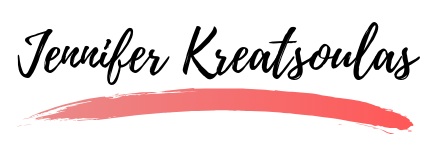Personal Statement on Racism and Unwavering Support of Black, Indigenous, People of Color
I write this statement from a place of privilege and a commitment never to stop asking: What actions can I take in my personal and professional life to be inclusive and supportive of Black, Indigenous, People of Color (BIPOC)?
The urgency of this question for me has intensified over the past weeks since the unconscionable murder of George Floyd on May 25, 2020. Protests and riots have moved (across) the country, and they have moved me beyond words. Like so many others, I am in shock over Mr. Floyd's death. More accurately, in shock over how he and other black people in America before him have been murdered by racist police officers (and the social and political structures that reinforce racism). I feel deep sadness, anger, frustration, and heartache.
My anger means nothing without action. My heartache for those grieving their loved ones means nothing without action. My frustration with the government and political structures means nothing without action. Supporting protestors means nothing without action.
As someone once taught me, insight without action is just insight. So, I ask myself again: What actions will I take?
In my business, Yoga for Eating Disorders, the actions I take and will continue to take, seek to provide safety, support, and sensitivity to ALL people on their recovery journey. Eating disorders affect every age, sex, gender, race, ethnicity, and socioeconomic group. ALL people are respected, valued, and heard at Yoga for Eating Disorders, and I do not/will not associate with organizations that harbor overt and covert racism. I believe in inclusivity and the richness of diversity.
Actions I take at Yoga for Eating Disorders to value inclusivity as well as keep my heart and mind open to learning from those in the BIPOC community include:
Diversifying my social media feeds so that I am learning from the BIPOC community. I will also share their posts in my community so that my small corner of the recovery community can learn about others' experiences and identify intersections of shared experience. Everyone deserves to be seen and heard and validated, always.
Connect and collaborate with experts and leading voices with different backgrounds than myself so that I stay open to learning from others and educate my community about how eating disorders affect the BIPOC community.
Be mindful of the words and images I post. Seek out pictures representing a variety of body sizes, races, abilities, genders, socioeconomic statuses, sexual orientations, and ages.
Share others' voices on my blog to promote inclusion as well as provide space for individuals to tell their stories.
Do my part to always use inclusive language in my writing, talks, on social media, and every human interaction each day.
In my personal life, I believe one of the most significant ways I can put my privilege to work is to be a role model for my children. This means I will always speak of all people equally, to be intentional with my words, to educate them about inclusivity and diversity, and not to hide the despicable history of racism in this country. I will talk with them about current events and give them space to ask questions, to show them racism is not a belief system we accept or participate in, to help them find the words to speak back to racist comments, to welcome friends of all color into our home and family, to instill in them kind-heartedness.
I am committed to hold an open heart and mind to all people and to take actions that support BIPOC. I hope you will join me in the steps I have outlined here, and I welcome you to share with me the actions you are taking so that I can implement them.
I am here to listen to and learn from your ideas on how to include ALL people. Please contact me with any comments, suggestions, or feedback.
With heartfelt sincerity,
Jennifer
June 11, 2020
